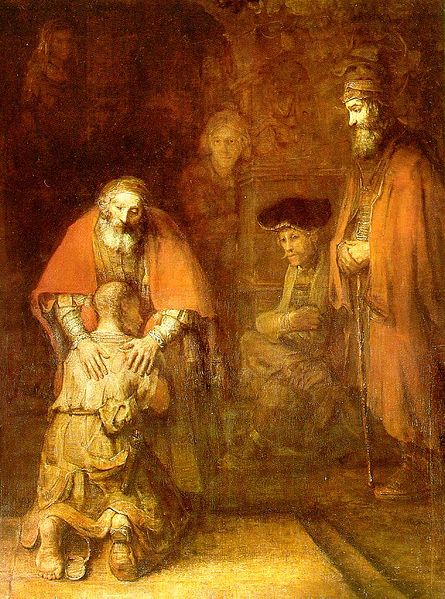Early Lutherans had a rich casuistry literature, which gave them guidance on difficult pastoral, moral, and doctrinal questions. Little of this has been translated, so a glance at the contents is useful, showing how they organized their thinking on these cases of conscience. For more on this, see my book:
Mayes, Benjamin T. G. Counsel and Conscience: Lutheran Casuistry and Moral Reasoning after the Reformation. Göttingen: Vandenhoeck & Ruprecht, 2011.
Georg Dedekenn, Johann Ernst Gerhard, and Christian Grübel, eds., Thesaurus Conciliorum et Decisionum (1671 ed.)[1]
The work is organized around the “Three Estates”: church, civil
government, and home (but here dealing just with issues of marriage).
I. Churchly Issues. The organization is somewhat haphazard. Main
topics include:
A. Doctrinal matters.
B. Call process.
C. Church fellowship issues.
D. Baptism.
E. Lord’s Supper.
F. Church discipline and rights of pastors
(or pastor-hearer relations).
G. Funerals.
II. Political Issues. Much of this would not be relevant for our
purposes. It would instead be useful for Lutheran ethics or moral theology.
III. Marital Issues. Here are the issues:
A. Church Marriage Courts
B. Celibacy
C. Concubinage
D. Polygamy
E. Betrothals
F. Consent of Parents, Tutors, and
Relatives
G. Sexual Intercourse Between Betrothal
and Marriage
H. Prohibited Grades of Relationship
J. Marriage Ceremony (Priestly Blessing)
K. Separation from Bed and Board
L. Divorce (for various causes)
M. Remarriage
Friedrich Balduin, De casibus conscientiae[2]
Book 1. On conscience and its cases in general (pp. 1–44).
Book 2. On actions of man concerning God and religion (pp. 45–532).
This section includes issues of doctrine, the use of Baptism and the Lord’s
Supper, and many other topics.
Book 3. On the actions of man concerning heavenly spirits (pp.
533–848). This section also deals with evil spirits, possessed people,
melancholy people, wizards and witches, divination, and ghosts.
Book 4. On the actions of man concerning human matters (pp.
849–1281). Topics include the human body, the care of the mind, good fortune,
lifestyle (genus vitae), call to the ministry of the Word, ordination of
ministers of the Church, preaching duty, administration of Baptism,
administration of the Lord’s Supper, use of the keys of the Church, beauty and
order in the Church (liturgy and ceremonies), civil government, marriage,
duties of parents and children, duties of brothers, sisters, and neighbors,
masters and servants, and behavior with one’s neighbor.
Porta, Pastorale Lutheri[3]
1. On the worthiness and highness of the holy preaching office
(3–15).
2. On the call of preachers (16–44).
3. On studying (45–56).
4. On the preachers’ gifts, and their manner of teaching, etc.
(57–71).
5. On teaching (72–121).
6. On rebuking (122–187).
7. On comforting (188–242).
8. On admonishing and warning (243–281). [Notice the division of
pastoral duties according to 2 Tim. 3:16; Rom. 15:4!]
9. On praying (282–298).
10. On the external life and behavior of preachers (299–318).
11. On the marriage of priests, and how they should govern their
wives, children, and servants (319–339).
12. On marriage matters in general (340–373).
13. On baptizing (374–386).
14. On matters of confession and on the key of releasing and
binding (387–414).
15. On distributing sacraments (415–444).
16. On diligent care of the poor (445–462).
17. On the depressed [Schwermüthigen], afflicted, and possesed: how to deal with them
(463–492).
18. On the sick and evildoers
who have forfeited their lives, who are to be visited and comforted (493–520).
19. On funerals, or the
ceremonies at burials (521–529).
20. On the support and salary
of preachers (530–542).
21. On resistance to and cross
of genuine preachers (543–552).
22. On the comfort and reward
of faithful preachers (552–567).
23. On unfaithful preachers,
sectarian spirits, fanatics, their manner and characteristic (568–586).
24. On the punishment and
demise of unfaithful and false teachers, heretics, and sectarian spirits
(587–598).
[1]
Georg Dedekenn and Johann Ernst Gerhard,
eds., Thesauri Consiliorum Et Decisionum Volumen Primum, Ecclesiastica
Continens, 2nd ed. (Jena: Zacharias Hertel, 1671); See Benjamin T. G.
Mayes, Counsel and Conscience: Lutheran Casuistry and Moral Reasoning after
the Reformation (Göttingen: Vandenhoeck & Ruprecht, 2011), 110–14,
143–45.
[2]
Friedrich Balduin, Tractatus Luculentus,
Posthumus, Toti Reipublicae Christianae Utilissimus, De Materiâ rarissimè
antehac enucleatâ, Casibus nimirum Conscientiae (Wittenberg: Paulus
Helwigius, 1628).
[3]
Conrad Porta, ed., Pastorale Lutheri: Das
Ist Nützlicher Und Nöthiger Unterricht von Den Fürnembsten Stücken Zum Hl.
Ministerio Gehörig (s.l., 1597); Conrad Porta, Pastorale Lutheri: das
ist: Nützlicher und nöthiger Unterricht von den vornehmsten Stücken zum heil.
Ministerium gehörig, und richtige Antwort auf mancherlei wichtige Fragen: Für
anfangende Prediger und Kirchendiener (Nördlingen: Beck, 1842). I cite the 1842 edition.


No comments:
Post a Comment